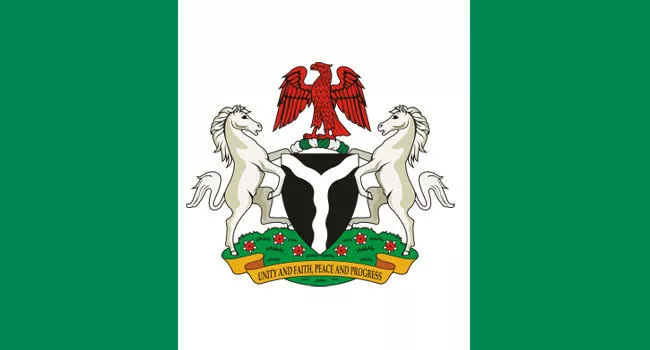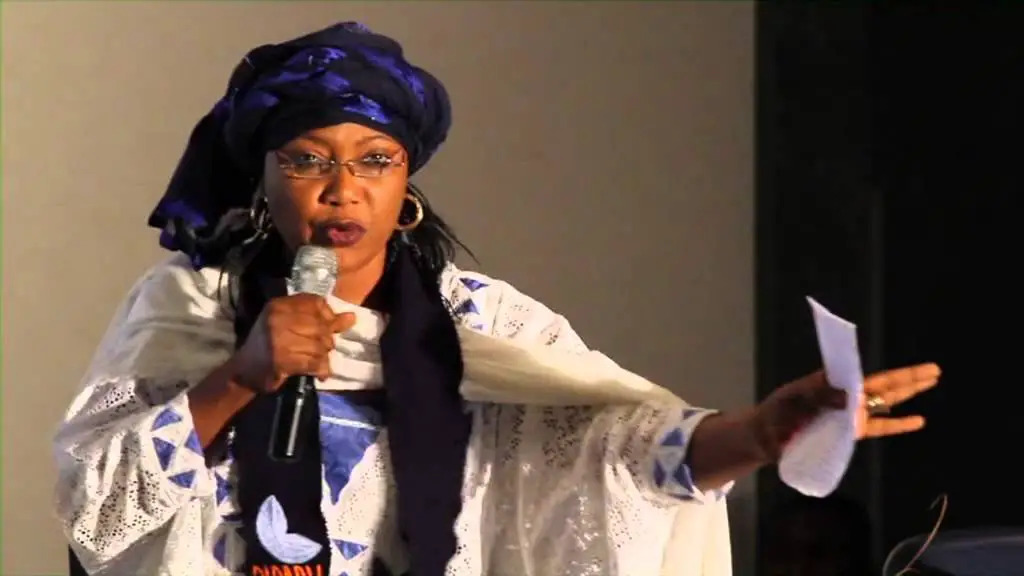Nigeria’s Minister of Women Affairs, Imaan Sulaiman-Ibrahim, had been in office for just a few days when she cradled a terrified 4-year-old girl—shaking, traumatised—after surviving brutal abuse.
That moment, she says, changed everything.
“I looked into her eyes, and I knew—this cannot be business as usual,” Sulaiman-Ibrahim told reporters in Abuja during a briefing marking her first 100 days in office under President Bola Ahmed Tinubu’s administration. “The time for slow progress is over. It is Women O’Clock in Nigeria.”
And she’s not kidding.
In just over three months, Sulaiman-Ibrahim has rolled out an ambitious plan to economically empower 10 million Nigerian women by 2027, overhaul child protection laws, and put Nigeria at the frontlines of global gender leadership.
Her message? Policies are not enough. It’s action time.
Big Moves: 10 Million Women By 2027
The minister’s plan centres on a major push to unlock the economic potential of Nigerian women— more than 100 million strong—as drivers of the country’s future.
“We’re not just talking about women’s empowerment as charity,” Sulaiman-Ibrahim said.
“We’re talking about building a $1 trillion economy; women will be at the centre of it.”
The Ministry launched the Nigeria for Women Scale-Up Project, backed by the World Bank, to reach 4.5 million women across all 36 states and the capital, Abuja.
The goal? Equip women with business skills, financial literacy, and cooperative funding to start and grow businesses.
But that’s not all.
A partnership with WEMA Bank is rolling out the MOWA-SARA Skills Acquisition Programme, which targets 500,000 women for training in vocational skills, entrepreneurship, and digital finance.
In Kano State, the pilot programme is already training 2,500 women in tailoring, catering, and hospitality.
And coming next—a National Microfinance Framework for Women Entrepreneurs to give women affordable loans and investment tools to build their futures.
No Child Left Behind
Economic empowerment is only part of the story.
The other half ?
Protecting Nigeria’s most vulnerable—its children.
Sulaiman-Ibrahim made it clear: “The nation’s children are now a top priority.
A Child Rights Act Review Committee is already working to toughen laws against child abuse, trafficking, and underage marriage—problems that have plagued Nigeria for years.
“We’re closing the loopholes. We’re making sure no abuser escapes justice,” the Minister said.
But she’s not stopping at laws.
Her Ministry is developing a National Child Protection Framework—a first-of-its-kind nationwide system to safeguard children—and is exploring the creation of a dedicated institution focused solely on child welfare.
In the meantime, Sulaiman-Ibrahim is tackling the everyday struggles holding girls back.
Her national menstrual hygiene campaign is distributing 10,000 menstrual kits to girls, aiming to keep them in school and break the stigma around periods.
Violence? Not On Her Watch
Sulaiman-Ibrahim’s message on gender-based violence is blunt: Enough is enough. Representing Nigeria at the Global Ministerial Conference on Ending Violence Against Children in Bogotá, Colombia, she unveiled bold targets:
“2 million children at risk of violence will receive support services by 2030.
“10 million families will get evidence-based parenting support to prevent abuse at home.
“Nigeria is standing up,” she said. “We are saying—we will protect our children.”
Clean Energy for Survival
Sulaiman-Ibrahim’s focus also extends to climate survival, knowing that women in rural areas bear the harshest burden.
Her team is pushing to transition 1 million households from firewood cooking to clean energy solutions, reducing health risks and environmental damage.
Taking Nigeria to the World
But, Sulaiman-Ibrahim isn’t just shaking things up at home—she’s putting Nigeria on the global map for gender equality leadership.
This March, Nigeria will host six high-impact sessions—a historic first—on financial inclusion, women’s leadership, and child protection at the Commission on the Status of Women (CSW69) in New York.
At COP29 in Azerbaijan, her Ministry will push for gender-focused climate action, demanding that women’s voices be part of global climate solutions.
“We are no longer on the sidelines. Nigeria is leading the global gender conversation,” she said.
The Road Ahead
The High-Level Presidential Advisory Council on Women and Girls has been formed to keep the momentum—bringing together policy leaders to ensure these programs don’t just stay on paper.
“We are breaking down doors so Nigerian women and children get what they deserve,” Sulaiman-Ibrahim said.
Her message to Nigerians?
“It is Women O’Clock. We are not asking for permission. We are moving forward.”
The Bottom Line
In 100 days, Sulaiman-Ibrahim has taken Nigeria’s Ministry of Women Affairs from rhetoric to action.
The stakes are high.
But for the millions of Nigerian women and children depending on her, failure is not an optionV.
“We will get this done,” she said, with fire in her voice.
“Because their future depends on it.”
• O’tega Ogra, President Tinubu’s Senior Special Assistant (Digital/ New Media)




 3 hours ago
25
3 hours ago
25








 English (US) ·
English (US) ·